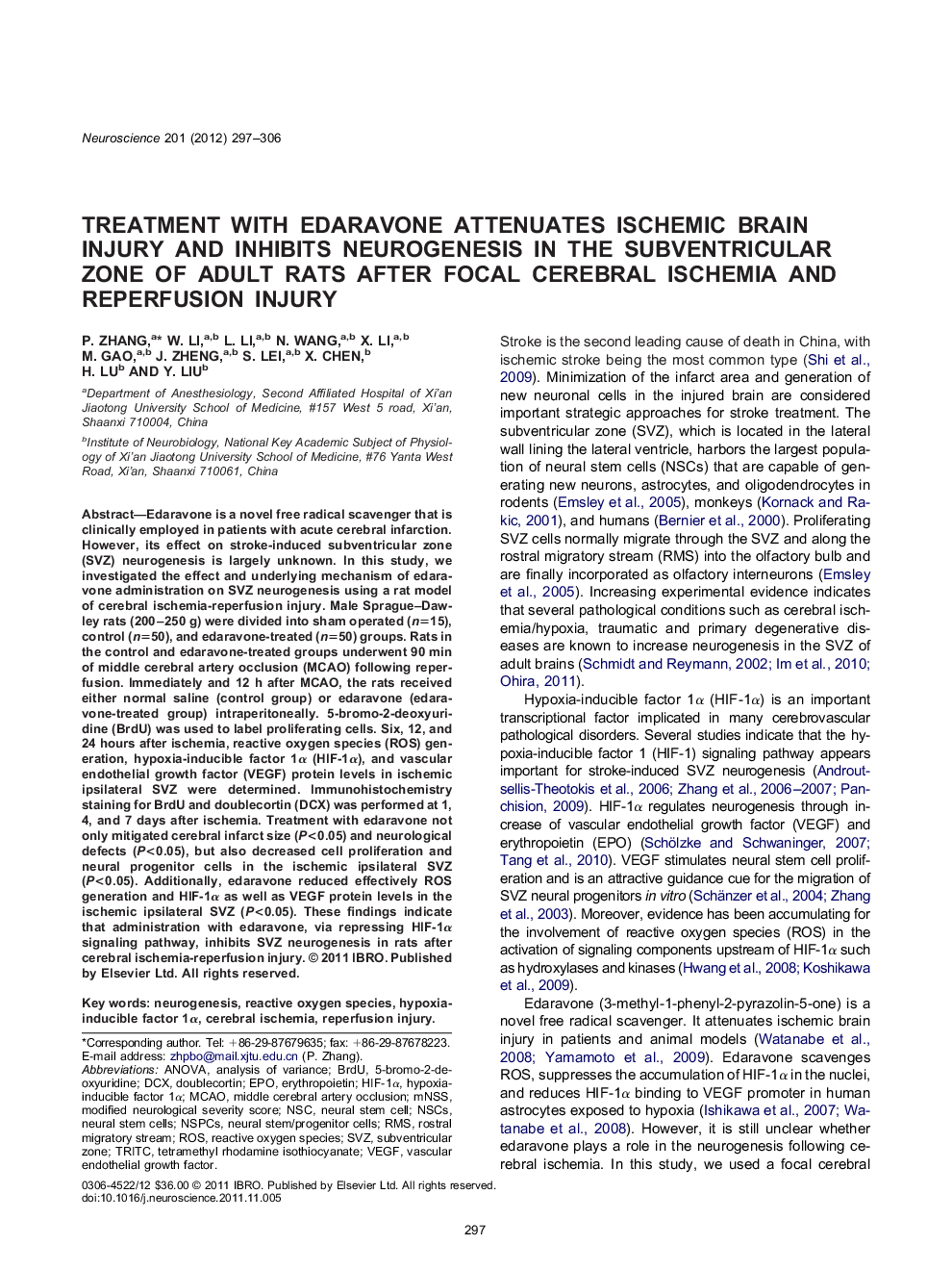| Article ID | Journal | Published Year | Pages | File Type |
|---|---|---|---|---|
| 4338563 | Neuroscience | 2012 | 10 Pages |
Edaravone is a novel free radical scavenger that is clinically employed in patients with acute cerebral infarction. However, its effect on stroke-induced subventricular zone (SVZ) neurogenesis is largely unknown. In this study, we investigated the effect and underlying mechanism of edaravone administration on SVZ neurogenesis using a rat model of cerebral ischemia-reperfusion injury. Male Sprague–Dawley rats (200–250 g) were divided into sham operated (n=15), control (n=50), and edaravone-treated (n=50) groups. Rats in the control and edaravone-treated groups underwent 90 min of middle cerebral artery occlusion (MCAO) following reperfusion. Immediately and 12 h after MCAO, the rats received either normal saline (control group) or edaravone (edaravone-treated group) intraperitoneally. 5-bromo-2-deoxyuridine (BrdU) was used to label proliferating cells. Six, 12, and 24 hours after ischemia, reactive oxygen species (ROS) generation, hypoxia-inducible factor 1α (HIF-1α), and vascular endothelial growth factor (VEGF) protein levels in ischemic ipsilateral SVZ were determined. Immunohistochemistry staining for BrdU and doublecortin (DCX) was performed at 1, 4, and 7 days after ischemia. Treatment with edaravone not only mitigated cerebral infarct size (P<0.05) and neurological defects (P<0.05), but also decreased cell proliferation and neural progenitor cells in the ischemic ipsilateral SVZ (P<0.05). Additionally, edaravone reduced effectively ROS generation and HIF-1α as well as VEGF protein levels in the ischemic ipsilateral SVZ (P<0.05). These findings indicate that administration with edaravone, via repressing HIF-1α signaling pathway, inhibits SVZ neurogenesis in rats after cerebral ischemia-reperfusion injury.
▶Edaravone, a novel free radical scavenger, is effective in reducing brain damage after stroke. ▶Edaravone decreased SVZ neurogenesis after stroke. ▶Repressing ROS and HIF-1α signaling may contribute to the inhibition of neurogenesis. ▶Our findings reveal the role of ROS and HIF-1 α signaling in neurogenesis after stroke.
